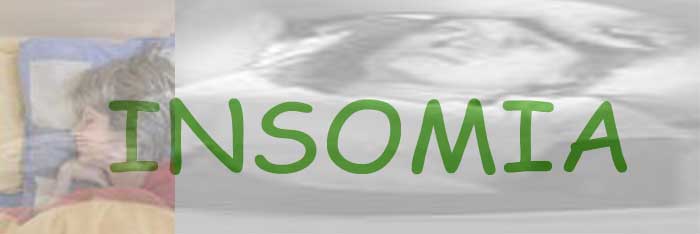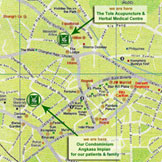|
Autism Treatment Malaysia
Insomnia Autism Kids Treatment
The Tole's Research of Insomnia is all in the 5 ORGANS.
Each can be treated by out Tole's Way of Medications.
1. Heart Hearty,
2. Liver Heat,
3. Spleen coordination’s disorder,
4. Lungs Dryness and Mis-coordinations,
5. Kidney dysfunctions and weakness.
Major contributions to all these conditions are from STRESS and DIET.
All these can be corrected by our herbal medications. Please e-mail to us and then we can send you the correct herbal medicine to treatment your Insomnia problem once for all, with our special Tole's Insomnia Herbal Medicine treatment.
Self-Care at Home
You can do several things to prepare yourself for sleep.
- Exercise regularly.
- Aerobic exercise and general fitness are important to maintaining good health.
- You should exercise in the early part of the day and avoid strenuous activity before bedtime.
- Avoid large meals and excessive fluids before bedtime.
- Control your environment.
- Light, noise, and elevated room temperature can disrupt sleep. Shift workers and night workers especially must address these factors.
- Your body's circadian rhythm (biological clock) is particularly sensitive to light. Parents who need to sleep during the day may have to make child care arrangements to allow them to sleep.
Insomnia
Insomnia is a sleep disorder that is characterized by difficulty falling and/or staying asleep. People with insomnia have one or more of the following symptoms:
- Difficulty falling asleep
- Waking up often during the night and having trouble going back to sleep
- Waking up too early in the morning
- Feeling tired upon waking
Types of Insomnia
There are two types of insomnia: primary insomnia and secondary insomnia.
- Primary insomnia: Primary insomnia means that a person is having sleep problems that are not directly associated with any other health condition or problem.
- Secondary insomnia: Secondary insomnia means that a person is having sleep problems because of something else, such as a health condition (like asthma, depression, arthritis, cancer, or heartburn); pain; medication they are taking; or a substance they are using (like alcohol).
Acute Vs. Chronic Insomnia
Insomnia also varies in how long it lasts and how often it occurs. It can be short-term (acute insomnia) or can last a long time (chronic insomnia). It can also come and go, with periods of time when a person has no sleep problems. Acute insomnia can last from one night to a few weeks. Insomnia is called chronic when a person has insomnia at least three nights a week for a month or longer.
What Causes Insomnia?
Causes of acute insomnia can include:
- Significant life stress (job loss or change, death of a loved one, divorce, moving).
- Illness.
- Emotional or physical discomfort.
- Environmental factors like noise, light, or extreme temperatures (hot or cold) that interfere with sleep.
- Some medications (for example those used to treat colds, allergies, depression, high blood pressure and asthma) may interfere with sleep.
- Interferences in normal sleep schedule (jet lag or switching from a day to night shift, for example).
Causes of chronic insomnia include:
- Depression and/or anxiety.
- Chronic stress.
- Pain or discomfort at night.
What Are the Symptoms of Insomnia?
Symptoms of insomnia include:
- Sleepiness during the day.
- General tiredness.
- Irritability.
- Problems with concentration or memory.
How Is Insomnia Diagnosed?
If you think you have insomnia, talk to your health care provider. An evaluation may include a physical exam, a medical history, and a sleep history. You may be asked to keep a sleep diary for a week or two, keeping track of your sleep patterns and how you feel during the day. Your health care provider may want to interview your bed partner about the quantity and quality of your sleep. In some cases, you may be referred to a sleep center for special tests.
How Is Insomnia Treated?
Acute insomnia may not require treatment. Mild insomnia often can be prevented or treated by practicing good sleep habits (see below). If your insomnia makes it hard for you to function during the day because you are sleepy and tired, your health care provider may prescribe sleeping pills for a limited time. Rapid onset, short-acting medications can help you avoid effects such as drowsiness the following day. Avoid using over-the-counter sleeping pills for insomnia since they may have undesired side effects and tend to lose their effectiveness over time.
Treatment for chronic insomnia includes first treating any underlying conditions or health problems that are causing the insomnia. If insomnia continues, your health care provider may suggest behavioral therapy. Behavioral approaches help you to change behaviors that may worsen insomnia and to learn new behaviors to promote sleep. Techniques such as relaxation exercise, sleep restriction therapy, and reconditioning may be useful.
What Habits Promote a Good Night's Sleep?
Good sleep habits, also called sleep hygiene, can help you get a good night's sleep. Here are some tips:
- Try to go to sleep at the same time each night and get up at the same time each morning. Try not to take naps during the day because naps may make you less sleepy at night.
- Avoid caffeine, nicotine, and alcohol late in the day. Caffeine and nicotine are stimulants and can keep you from falling asleep. Alcohol can cause waking in the night and interferes with sleep quality.
- Get regular exercise. Try not to exercise close to bedtime because it may stimulate you and make it hard to fall asleep. Experts suggest not exercising for at least three to four hours before the time you go to sleep.
- Don't eat a heavy meal late in the day. A light snack before bedtime, however, may help you sleep.
- Make your sleeping place comfortable. Be sure that it is dark, quiet, and not too warm or too cold. If light is a problem, try a sleeping mask. If noise is a problem, try earplugs, a fan, or a "white noise" machine to cover up the sounds.
- Follow a routine to help you relax before sleep. Read a book, listen to music, or take a bath.
- Avoid using your bed for anything other than sleep or sex.
- If you can't fall asleep and don't feel drowsy, get up and read or do something that is not overly stimulating until you feel sleepy.
If you find yourself lying awake worrying about things, try making a to-do list before you go to bed. This may help you to not focus on those worries overnight. |

